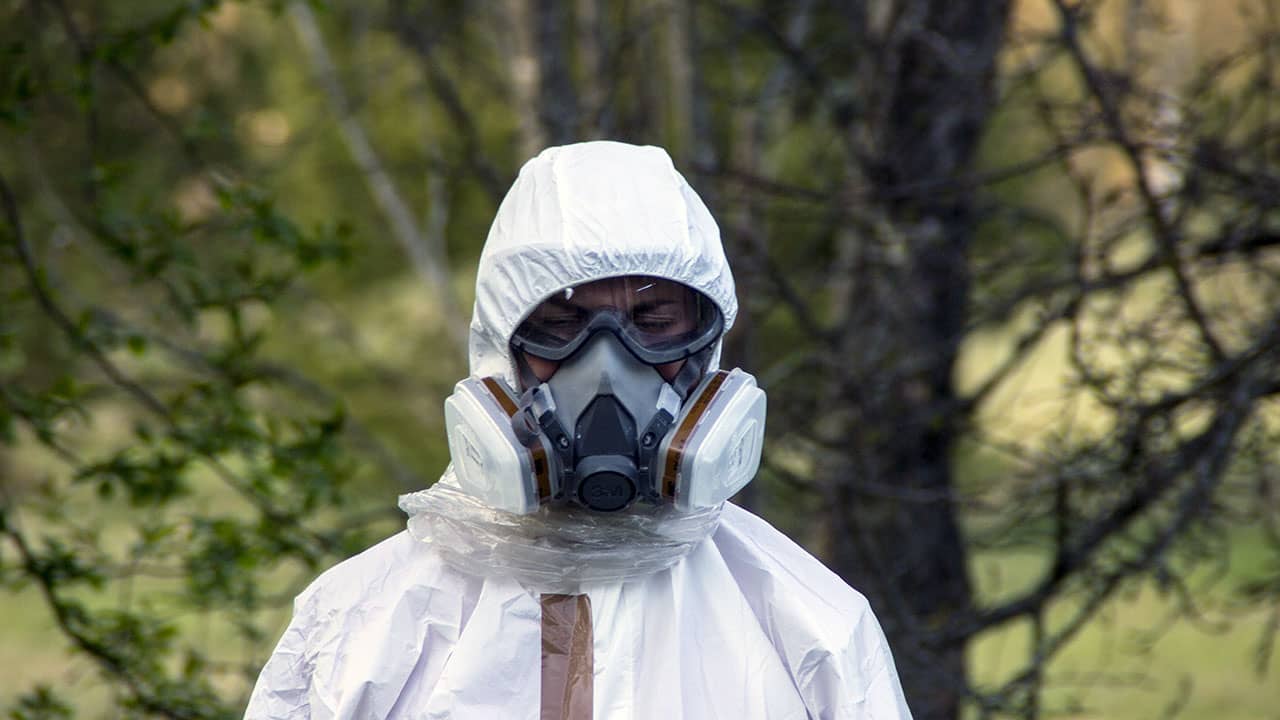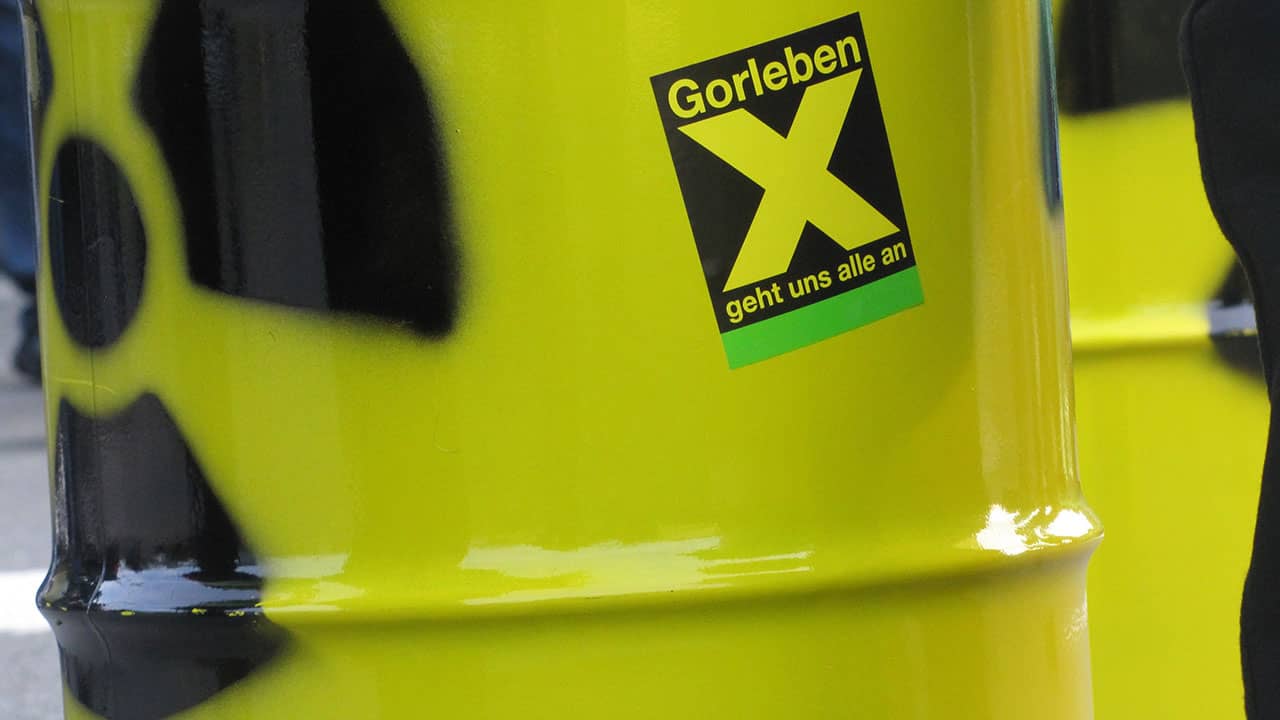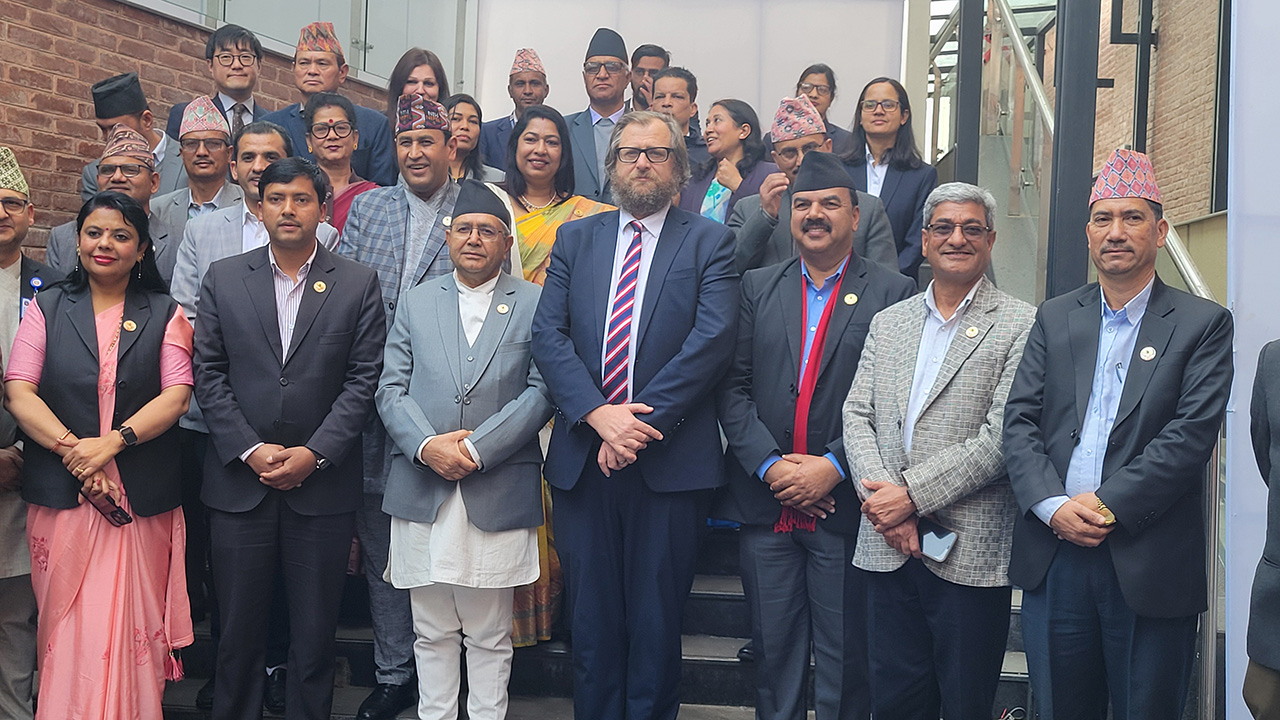
The Convention for the Physical Protection of Nuclear Materials (CPPNM) was adopted on 26th October 1979 and entered into force on 8th February, 1987. CPPNM provides for certain levels of physical protection during the international transport of nuclear material, in addition to establishing a general framework for cooperation among States in the protection, recovery, and return of stolen nuclear material. CPPNM also lists certain serious offenses involving nuclear material to be prescribed and punished by States Parties, and for which offenders are subject to a system of extradition or submission for prosecution.
In 1996, the UN Secretary-General (UNSG) prepared a report pursuant to UN General Assembly Resolution 50/53 (A/RES/50/53), which analyzed international legal instruments in place relating to international terrorism. The Report concluded that a need existed to elaborate additional international frameworks in spheres not contemplated in existing treaties. One of the initiatives proposed was prevention of the use of weapons of mass destruction (WMD) by terrorists.
In the period immediately following the terrorist attacks of September 11, 2001 in the United States of America, the risk of WMD related terrorism, including nuclear terrorism, began to receive more urgent attention on the part of the international community. Nuclear and radiological materials in the illicit market, in parallel, also became a significant point of alarm, in particular in the context of the revelations surrounding the A.Q. Khan nuclear smuggling networks in the 1980s and 1990s.
The ability of Non-State Actors, including terrorists and terrorist organizations, not only to obtain and use Weapons of Mass Destruction (WMD), but also to gain access to Chemical, Biological, Radiological, and Nuclear (CBRN) materials, continues to pose a grave threat to international peace and security. In recent years, Non-State Actors have sought out new ways to acquire and use WMD in the commission of terrorist acts. With the ever-increasing growth and expansion of legal and illegal trade channels, the potential for access to such weapons and constitutive materials has, regrettably, only become easier.
The International Convention for the Suppression of Acts of Nuclear Terrorism (ICSANT) was adopted on 13th April, 2005. ICSANT criminalizes the possession, use, or threat of use of radioactive devices by Non State Actors, their accomplices, and organizers “with the intent to cause death or serious bodily injury” or environmental or property damage. ICSANT also requires States Parties governments either to prosecute terrorist suspects in domestic courts or extradite them to their home countries and also provides a framework for increased exchanges of information and greater cooperation between States in the pursuit of terrorist suspects. ICSANT also urges states to ensure the protection of radioactive materials, “taking into account” recommendations of the International Atomic Energy Agency (IAEA). ICSANT also classifies as a punishable offense any attacks on nuclear facilities that could risk the release of radioactive material.
However, as the quantity of nuclear material in circulation for civilian use has steadily increased, both CPPNM and ICSANT were considered not to be fully adequate in the protection of nuclear installations or nuclear materials in domestic use, storage, and transport. Pursuant to Article 2, the CPPNM applies to nuclear material used for peaceful purposes while in international nuclear transport. On 8 July 2005, the State Parties to the CPPNM adopted the Amendment to the CPPNM. The amended Convention makes it legally binding for States Parties to protect nuclear facilities and material in peaceful domestic use, storage as well as transport. The Amendment also provides for greater cooperation between and among States regarding rapid measures to locate and recover stolen or smuggled nuclear material, mitigate any radiological consequences of sabotage, and prevent and combat related offences.
| CPPNM | Amendment to CPPNM | ICSANT |
|---|---|---|
|
Adopted: 26 October 1979 |
Adopted: 8 July 2005 |
Adopted: 13 April 2005 |
|
Opened for Signature: 3 March 1980 |
Opened for Signature: N/A |
Opened for Signature: 14 September 2005 |
|
Entered into Force: 8 February 1987 |
Entered into Force: 8 May 2016 |
Entered into Force: 7 July 2007 |
|
Number of States Parties: 162 |
Number of States Parties: 125 |
Number of States Parties: 117 |
|
Number of Signatories: 44 |
Number of Signatories: N/A |
Number of Signatories: 115 |
|
Depositary: International Atomic Energy Agency (IAEA) |
Depositary: International Atomic Energy Agency (IAEA) |
Depositary: UN Secretary-General |
The CPPNM obliges States Parties to:
The Convention also provides a framework for international cooperation in the exchange of information on physical protection.
As set out by the International Atomic Energy Agency (IAEA), the Amendment to the CPPNM makes it “legally binding to protect nuclear facilities and material in peaceful domestic use, storage, and transport and also provides for expanded cooperation between and among States regarding rapid measures to locate and recover stolen or smuggled nuclear material, mitigate any radiological consequences of sabotage, and prevent and combat related offences.”


| Country | ICSANT | CPPNM | ACPPNM |
|---|---|---|---|
| Bahamas | Non-Signatory State | State-Party | Non-State Party |
| Barbados | Non-Signatory State | Non-Signatory State | Non-State Party |
| Belize | Non-Signatory State | Non-Signatory State | Non-State Party |
| Bolivia | Non-Signatory State | State-Party | State-Party |
| Botswana* | State-Party | State-Party | State-Party |
| Burkina Faso | Signatory State | State-Party | State-Party |
| Cambodia | Signatory State | State-Party | Non-State Party |
| Cameroon | Non-Signatory State | State-Party | State-Party |
| Central African Republic | State-Party | State-Party | Non-State Party |
| Chad | Non-Signatory State | State-Party | State-Party |
| Colombia | Signatory State | State-Party | State-Party |
| Democratic Republic of Congo | State-Party | State-Party | Non-State Party |
| Ecuador | Signatory State | State-Party | State-Party |
| Eswatini | Signatory State | State-Party | State-Party |
| Gambia | Non-Signatory State | Non-Signatory State | Non-State Party |
| Ghana | Signatory State | State-Party | State-Party |
| Grenada | Non-Signatory State | State-Party | Non-State Party |
| Guinea | Signatory State | State-Party | Non-State Party |
| Guinea Bissau | State-Party | State-Party | Non-State Party |
| Guyana | Signatory State | State-Party | Non-State Party |
| Haiti | Non-Signatory State | Signatory State | Non-State Party |
| Honduras | Non-Signatory State | State-Party | Non-State Party |
| Liberia | Signatory State | Non-Signatory State | Non-State Party |
| Malawi*** | State-Party | State-Party | State Party |
| Malaysia | Signatory State | Non-Signatory State | Non-State Party |
| Maldives | Non-Signatory State | Non-Signatory State | Non-State Party |
| Mauritius | Signatory State | Non-Signatory State | Non-State Party |
| Mozambique**** | Signatory State | State-Party | State-Party |
| Nepal | Non-Signatory State | Non-Signatory State | Non-State Party |
| Pakistan | Non-Signatory State | State-Party | State-Party |
| Philippines | Signatory State | State-Party | State Party |
| Saint Vincent and the Grenadines | State Party | Non-Signatory State | Non-State Party |
| Senegal | Signatory State | State-Party | State-Party |
| Seychelles | Signatory State | State-Party | State-Party |
| Sierra Leone | Signatory State | Non-Signatory State | Non-State Party |
| Somalia | Non-Signatory State | Non-Signatory State | Non-State Party |
| South Sudan | Non-Signatory State | Non-Signatory State | Non-State Party |
| Suriname | Non-Signatory State | Non-Signatory State | Non-State Party |
| Tanzania | Non-Signatory State | State-Party | Non-State Party |
| Togo | Signatory State | State-Party | Non-State Party |
| Trinidad and Tobago | Non-Signatory State | State-Party | Non-State Party |
| Uganda | Non-Signatory State | State-Party | Non-State Party |
| Zambia | State-Party | State-Party | Non-State Party |
| Zimbabwe** | State-Party | State-Party | State Party |
*On 12 July 2021, Botswana acceded to the INTERNATIONAL CONVENTION FOR THE SUPPRESSION OF ACTS OF NUCLEAR TERRORISM
**On 20th September, 2021, Zimbabwe acceded to the Convention on the Physical Protection of Nuclear Material
In September 2023, Zimbabwe acceded to ICSANT and to the Amendment to the CPPNM
***On February 11th, 2022 Malawi acceded to the Amendment to the Convention for the Physical Protection of Nuclear Material
****Mozambique ratified the A/CPPNM on 26th September, 2022.
Launched in March 2021, PGA's Nuclear and Radiological Security Campaign seeks to address the fact that a large number of States worldwide have yet to become States Parties and/or fully implement (i) The Convention on the Physical Protection of Nuclear Material (CPPNM), (ii) its Amendment and (iii) the International Convention for the Suppression of Acts of Nuclear Terrorism (ICSANT).
PGA has an active membership network in many of the Signatory and Non-Signatory States worldwide to these 3 international treaties which it will be seeking to mobilize to promote broader universality and implementation of all 3 international treaties, in consultation, and collaboration with, relevant international organizations and partners.
PGA’s global membership, since 2015, has made decisive contributions to promoting universality and implementation of the Biological Weapons Convention as well as implementation of UN Security Council Resolution 1540.
Similarly, PGA’s global membership, have made equally substantive contributions to addressing the illicit trade in small arms and light weapons worldwide and in promoting universality and implementation of the Arms Trade Treaty.
Le Program ???????? de réduction de la menace liée aux armes est fier d’appuyer les efforts de @IAEAorg, @UNODC et @PGAction pour favoriser la mise en œuvre universelle de cet instrument juridique clé sur la #SécuritéNucléaire #ACPPNM
— Canada ONU - Vienne (@Canada_VIE_INT) May 8, 2021
Happy to participate in this excellent @PGAction webinar to discuss importance of key int’l instruments incl #ACPPNM in preventing #nuclear #terrorism with a distinguished group of African lawmakers. Each State plays a role in stopping criminal acts involving nuclear material. https://t.co/ty19q8lsds
— Jonathan Herbach (@JonathanHerbach) June 17, 2021
Supported by an expert Secretariat, PGA members work together to educate, sensitize, build technical capacity, and strengthen the political will of parliamentarians to achieve campaign objectives through concrete legislative and policy initiatives. PGA works with individual parliamentarians in their national contexts through country-specific strategies, leveraging that capacity with international networking to facilitate connections among parliamentarians and build bridges with civil society, domestic and international policy-makers, and other stakeholders.

While Nepal is already a State Party to the Nuclear Non-Proliferation Treaty and other agreements, to date action is still pending with respect to several other crucial international conventions and treaties.